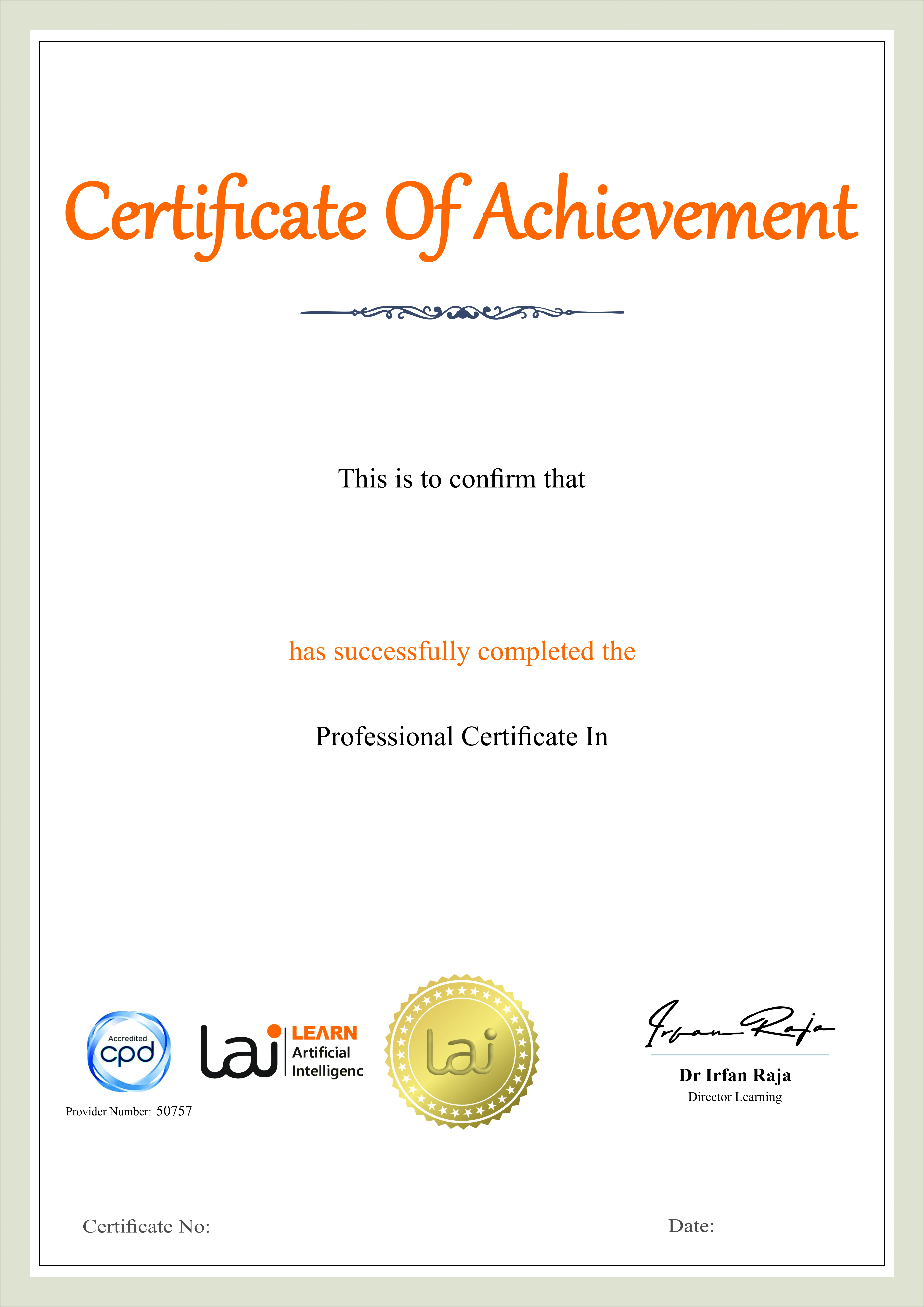The AI in Logistics and Supply Chain course is designed to explore how artificial intelligence is transforming global logistics and modern supply chain operations.
AI in Logistics and Supply Chain
The AI in Logistics and Supply Chain course is designed to explore how artificial intelligence is transforming global logistics and modern supply chain operations. As industries grow increasingly complex, AI technologies such as machine learning, robotics, and predictive analytics are being integrated to streamline operations, enhance efficiency, and enable smarter decision-making. From automated warehouses and predictive inventory systems to intelligent route planning and last-mile delivery optimization, AI in supply chain and logistics is not just the future—it's the present.
This course takes a practical, case-driven approach, introducing learners to real-world applications, tools, and challenges involved in implementing AI in logistics and supply chain frameworks. Whether you're a professional in operations or an AI enthusiast, this course provides you with the skills and knowledge to stay ahead in a rapidly evolving industry.
This course is ideal for supply chain professionals, logistics managers, operations analysts, and business strategists seeking to harness AI tools to modernize their workflows. It also serves AI developers, data scientists, and tech enthusiasts interested in applying AI within the context of logistics and global trade. Entrepreneurs in e-commerce and delivery services will find this course valuable in improving distribution strategies. No prior AI experience is required, though basic familiarity with business operations and technology is beneficial.
Understand the fundamentals of AI in supply chain and logistics.
Apply AI techniques in demand forecasting and inventory management.
Evaluate AI-powered warehouse automation tools and robotics.
Optimize supply chain networks through AI-driven route planning.
Manage risk and improve resilience using predictive analytics.
Enhance supplier relationships with AI-based procurement systems.
Improve customer service through intelligent last-mile delivery solutions.
Address ethical, regulatory, and security concerns in AI applications.
-
Explore the role of AI in redefining supply chains, logistics processes, and global trade networks.
-
Learn how AI enhances demand prediction accuracy, reduces stockouts, and optimizes inventory turnover.
-
Discover how robotics, vision systems, and AI algorithms are used in smart warehouses for picking, packing, and inventory control.
-
Dive into the use of AI for real-time routing, network optimization, and traffic pattern forecasting for logistics efficiency.
-
Understand how AI identifies risks, suggests alternatives, and supports continuity planning during disruptions.
-
Analyse how AI streamlines procurement, evaluates supplier performance, and improves contract negotiations.
-
Explore AI chatbots, delivery drones, and smart tracking systems that enhance customer satisfaction and delivery precision.
-
Examine data privacy, compliance, and ethical frameworks guiding the responsible use of AI in logistics and supply chains.
Earn a Professional Certificate
Earn a certificate of completion issued by Learn Artificial Intelligence (LAI), accredited by the CPD Standards Office and recognised for supporting personal and professional development.

Key Aspects of Course

CPD Accredited
Earn CPD points to enhance your profile

Free Course
This course is free to study

Self-Paced
No time limits or deadlines

Flexible & 24/7 Access
Learn anytime, anywhere

Build In-Demand Skills
Get job ready

Updated AI Skills
Stay current with AI advancement

Global Learning
Accessible Worldwide

Premium Materials
High-quality resources

Employer Approved
Boost your career prospects



